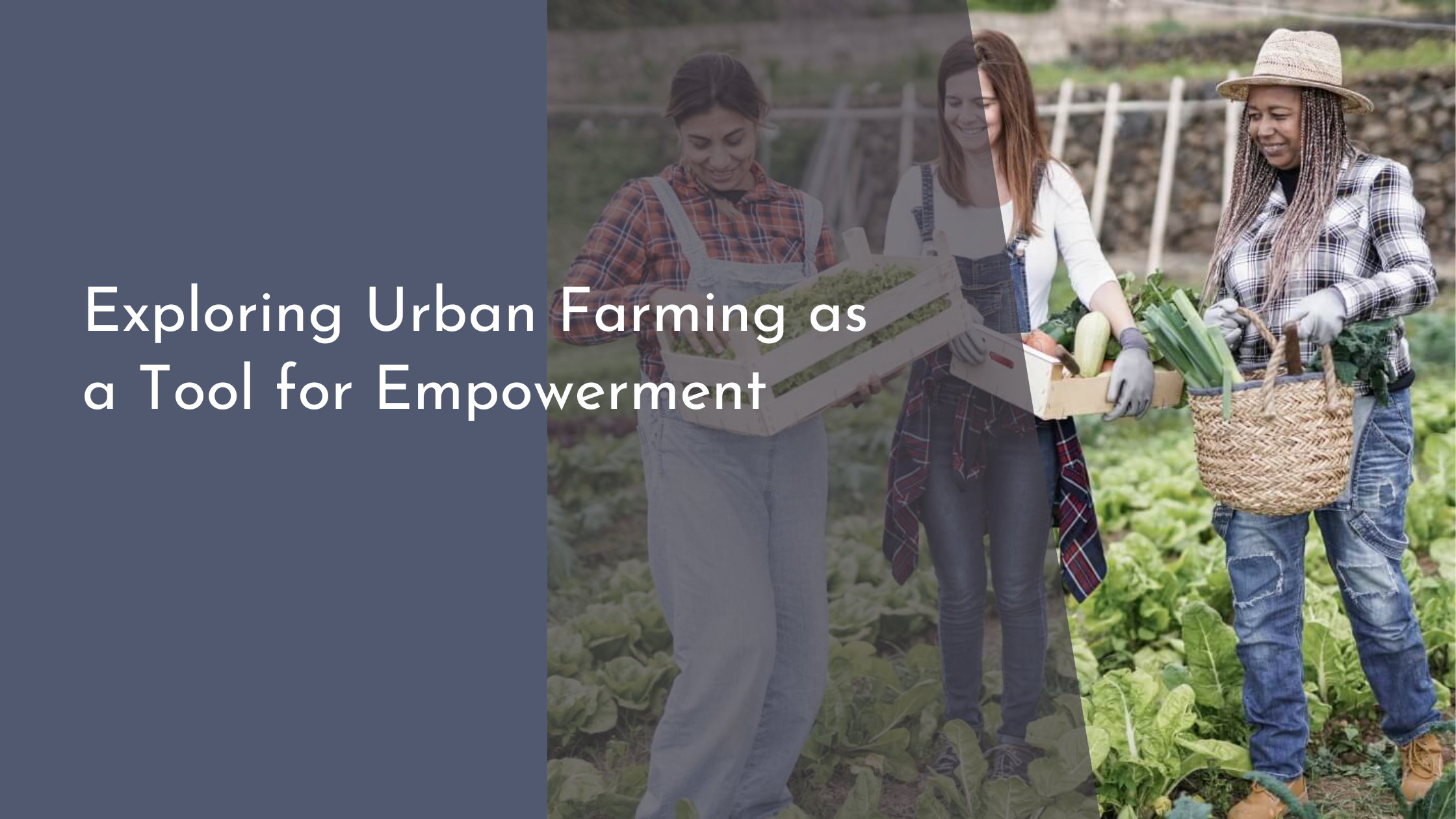Exploring Urban Farming as a Tool for Empowerment
Urban farming is rapidly becoming a beacon of hope in urban areas, where concrete jungles often overshadow the need for green spaces and fresh produce. With its growing popularity, urban farming is not just about cultivating plants; it’s about fostering community, health, and empowerment. As city dwellers start to embrace this movement, it’s essential to understand the various facets of urban farming and how it can transform lives and neighborhoods.
Understanding Urban Farming: A Modern Movement
Urban farming, in its essence, is the practice of cultivating, processing, and distributing food in or around urban areas. This movement has gained momentum in recent years as people become more aware of the environmental and health impacts of industrial agriculture. Unlike traditional farming, urban agriculture often makes use of spaces that would otherwise be overlooked or underutilized, such as rooftops, vacant lots, and community gardens. The goal is not only to produce food but also to make cities more self-sufficient and resilient.
Furthermore, urban farming is increasingly seen as a way to bridge the gap between food producers and consumers. In densely populated areas, having access to locally grown food can drastically reduce the carbon footprint associated with transportation and storage. Moreover, urban farms often serve as educational hubs where people can learn about sustainable practices and the importance of fresh produce in a healthy diet. By bringing agriculture into the city, urban farming reconnects people with their food sources and encourages more sustainable living.
Benefits of Urban Farming for Communities
Urban farming offers a myriad of benefits to communities, starting with improved access to fresh and nutritious produce. In many urban areas, especially in food deserts, residents have limited access to fresh fruits and vegetables. Urban farms can fill this gap by providing locally grown produce at affordable prices, thus promoting better nutrition and health outcomes for community members. This direct access to fresh food helps to combat issues of food insecurity and malnutrition prevalent in many cities.
Beyond nutritional benefits, urban farms serve as vital community spaces where people can come together, share knowledge, and work collaboratively. These spaces often become focal points for community engagement, fostering a sense of belonging and ownership among residents. Community members can participate in workshops, volunteer opportunities, and social events, which strengthen social ties and contribute to the overall well-being of the community. Additionally, urban farming initiatives often provide employment and skill-development opportunities, empowering individuals to take control of their livelihoods.
Innovative Urban Farming Techniques and Practices
Urban farming is constantly evolving, with innovative techniques being adopted to maximize efficiency and output. One popular method is vertical farming, which involves growing crops in vertically stacked layers, often in controlled indoor environments. This approach makes it possible to produce high yields in limited spaces, making it ideal for urban settings. Vertical farms can be designed to use minimal water and energy, often employing advanced technologies like hydroponics and aeroponics to nurture plants.
Another innovative practice is aquaponics, a system that combines fish farming (aquaculture) with plant cultivation (hydroponics). In this symbiotic environment, fish waste provides nutrients for plants, while the plants naturally filter and clean the water for the fish. Aquaponics is incredibly resource-efficient, using up to 90% less water than traditional farming methods. These techniques not only make urban farming feasible but also inspire creativity and a forward-thinking approach to agriculture.
Cultivating Empowerment Through Urban Farming
Urban farming empowers individuals by offering them the skills and knowledge to grow their own food. This self-reliance can be particularly empowering for marginalized communities, where access to fresh, healthy food is often limited. By learning to cultivate their own produce, individuals gain a sense of achievement and independence, which can translate into greater confidence and a willingness to tackle other challenges in their lives.
Moreover, urban farming projects often have a strong social component, encouraging collaboration and networking among participants. These collaborative efforts can lead to the formation of supportive networks and a sense of community cohesion. As participants work together to overcome challenges and share successes, they develop leadership skills and build resilience. The empowerment gained through urban farming extends beyond the individuals involved, creating ripple effects that benefit entire communities and promote social change.
Urban farming is much more than a trend; it is a movement that has the potential to transform urban landscapes and uplift communities. By providing access to fresh produce, fostering community engagement, and promoting sustainable practices, urban farming serves as a powerful tool for empowerment. As cities continue to grow and face urbanization challenges, embracing urban farming can lead to healthier, more resilient, and empowered communities. The future of cities may very well be rooted in the soil of urban farms.

